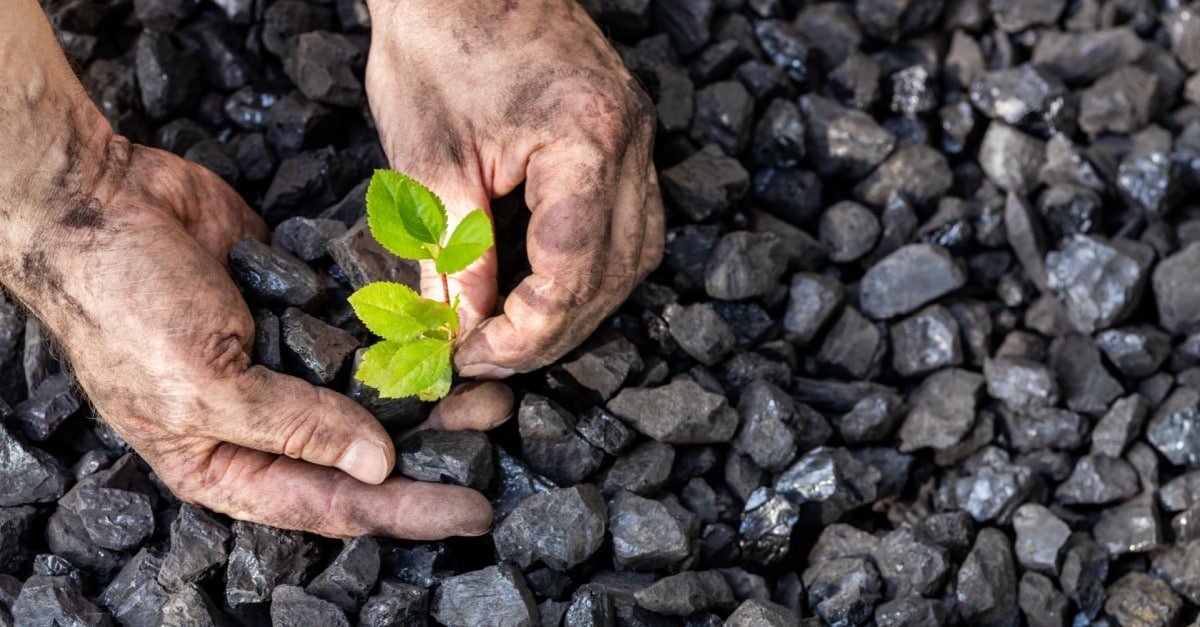
Should the Philippines Phase Out Coal?
- March 5, 2025
The Philippines is highly vulnerable to natural disasters, with around 60% of its land and 74% of its people exposed to risks like floods, typhoons, droughts, and landslides. Climate change is expected to worsen these hazards, especially typhoons, as the country lies in the world’s most active cyclone zone. The country faces about 20 storms annually, with 8 hitting land.
Key livelihoods like farming and fishing rely heavily on the environment, making the country susceptible to climate change. Meanwhile, deforestation and biodiversity loss intensify its effects. Combined with its geographic location, these factors have made the Philippines the most at-risk nation for climate disasters three years in a row.
In response, the country has pledged to cut emissions by 75% by 2030 under the Paris Agreement, with 97.29% of the reductions contingent on foreign aid. Coal plants, key to its energy supply, are known to contribute significantly to emissions. This raises the question: Will shutting them down truly impact climate change?
(Also read: The Reality of Coal in Our Energy Transition)
PH’s share in global emissions
According to the Department of Energy (DOE), the Philippines’ power mix differs from more developed economies because of demographic, economic, and energy factors. As of January 2024, China had 1,136.7 gigawatts (GW) of coal power capacity, Indonesia 51.6 GW, and the Philippines just 12.1 GW, highlighting the vast gap in energy infrastructure.
Although coal dominates the Philippines’ energy mix, its global impact is minimal. As reported in the 2023 European Commission – Emissions Database for Global Atmospheric Research (EDGAR), China led global emissions in 2022 at 29.2%, while Indonesia ranked 7th at 2.3%. In stark contrast, the Philippines contributed just 0.5%, a fraction of the world’s total greenhouse gas emissions.
Given this minimal footprint, Terry L. Ridon, public analyst and InfraWatch PH convenor, stated that developing countries like the Philippines, unlike heavily industrialized nations, are not required to make binding climate and renewable energy (RE) commitments.
He noted, “At our current stage of economic development and limited land areas for food production, the nation cannot yet dispense with baseload technologies such as coal, oil, and gas, without incurring significant energy costs detrimental to the public.”
(Also read: DOE Approves 11 New Energy Projects for Grid Impact Studies)
The dangers of quickly phasing out coal
Considering the country’s minimal greenhouse gas emissions, shutting down coal plants abruptly could be harmful. As a key baseload power source, coal ensures a stable electricity supply. A sudden shift without sufficient alternatives may cause shortages and higher costs, straining the economy and public welfare.
Based on DOE data, wind and solar generated only 2,582 gigawatt-hours (GWh) in 2022, accounting for 2.6% of the country’s total 111,516 GWh power output. In contrast, coal produced 66,430 GWh, making up the majority at 57.7%.
Minimal Government Thinkers President Bienvenido S. Oplas, Jr. believes that wind and solar power cannot replace coal without risking large-scale blackouts. He explained, “Challenges to renewables especially intermittent wind-solar is that the Philippines is growing fast economically… We need at least 7 to 8 TWh (terawatt-hours) of additional energy per year from 2024-2026… otherwise, we cannot grow (GDP) 6% or more yearly as we will have frequent rotational blackouts as demand keeps rising and supply is not catching up.”
This concern is exemplified by the DOE’s recent decision to reconsider the accelerated retirement of the 232-megawatt (MW) Mindanao coal-fired power plant. The potential delay is due to fears that decommissioning the plant earlier than planned could result in electricity supply shortages. DOE projects an 8.2% increase in Mindanao’s power demand, reaching 2,789 MW in 2025.
Moreover, the International Labor Organization (ILO) warns that phasing out coal too quickly in countries like the Philippines could result in significant job losses. Coal-dependent regions would see both direct and indirect employment decline, disrupting local economies and livelihoods.
Transitioning to RE
While RE initiatives are promising, Erel B. Narida, president of the Renewable Energy Association of the Philippines, raised concerns about the low participation in the 2024 Green Energy Auction (GEA), citing issues with pricing and financial viability.
He stated, “There’s only a few that really have the financial muscle to do that and with that, you require foreign direct investments for that.”
DOE Undersecretary Rowena Guevara also recognizes the high investment costs for RE projects. “These [energy transition] strategies take into account that there is a price to pay for improving the security, sustainability, resiliency, and reliability of our system and transitioning to a low-carbon economy. However, energy transition will only be possible if transition financing is sufficient,” she said.
Eduardo Araral, associate professor at the Lee Kuan Yew School of Public Policy, stressed during the 6th Paderanga-Varela Memorial Lecture that the Philippines’ energy system is not prepared for a large-scale transition to renewables. He warned that the grid must be ready before expanding renewable options. “Energy security and affordability, first and foremost. Decarbonization should be a second point.”
Bottom Line
Though transitioning away from coal has environmental benefits, phasing out coal in the Philippines will not significantly impact climate change. The country’s greenhouse gas emissions are minimal, both historically and currently, compared to major global emitters. Other nations have contributed far more over the past century, making the Philippines’ emissions too small to meaningfully alter climate change impacts.
Given this, eliminating coal and other fossil fuels would not be a logical solution. The Philippines needs stable energy to support economic growth, and an immediate shift away from fossil fuels is impractical without sufficient resources to invest in reliable renewable infrastructure.
In the meantime, the country can prioritize climate change adaptation and resilience building while ensuring energy abundance and security. A reliable and sufficient power supply is essential for a productive and prosperous society, enabling communities to adapt to climate challenges without compromising economic stability.
Sources:
https://climateknowledgeportal.worldbank.org/country/philippines/vulnerability
https://www.iom.int/news/climate-change-adaptation-and-community-resilience-philippines
https://www.abs-cbn.com/news/2024/9/12/philippines-is-world-s-riskiest-country-for-3rd-straight-year-1758
https://climatepromise.undp.org/what-we-do/where-we-work/philippines
https://business.inquirer.net/501009/renewables-dominate-pipeline-of-new-power-projects-in-2025
https://www.ilo.org/publications/just-energy-transition-southeast-asia-impact-coal-phase-out-jobs
https://www.facebook.com/watch/live/?ref=watch_permalink&v=1676235962922048
https://www.facebook.com/watch/live/?ref=watch_permalink&v=1676235962922048
https://www.argusmedia.com/en/news-and-insights/latest-market-news/2658636-philippines-to-review-shutdown-of-232mw-coal-plant



